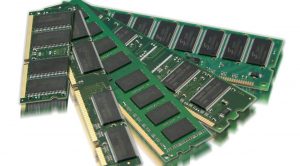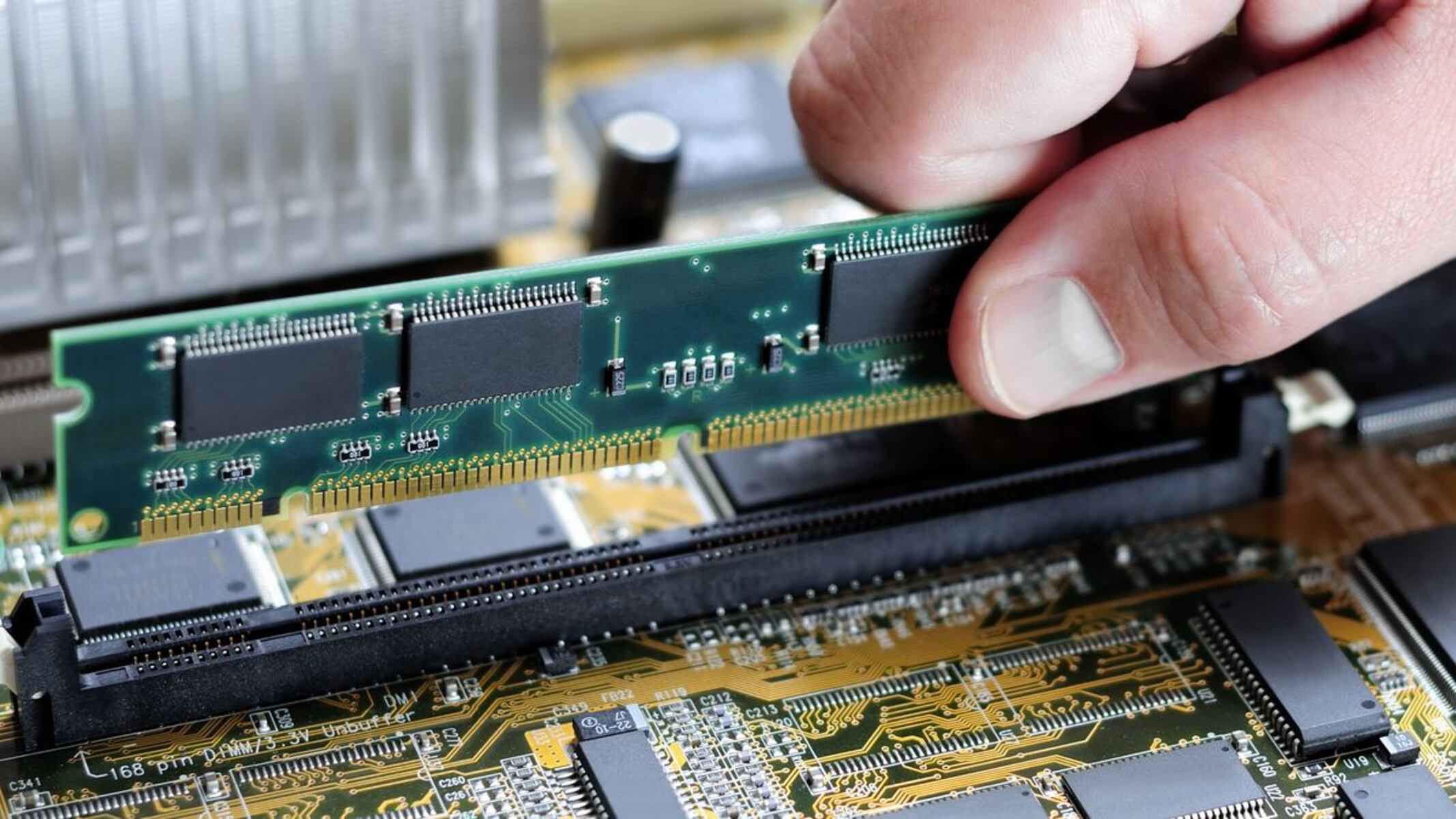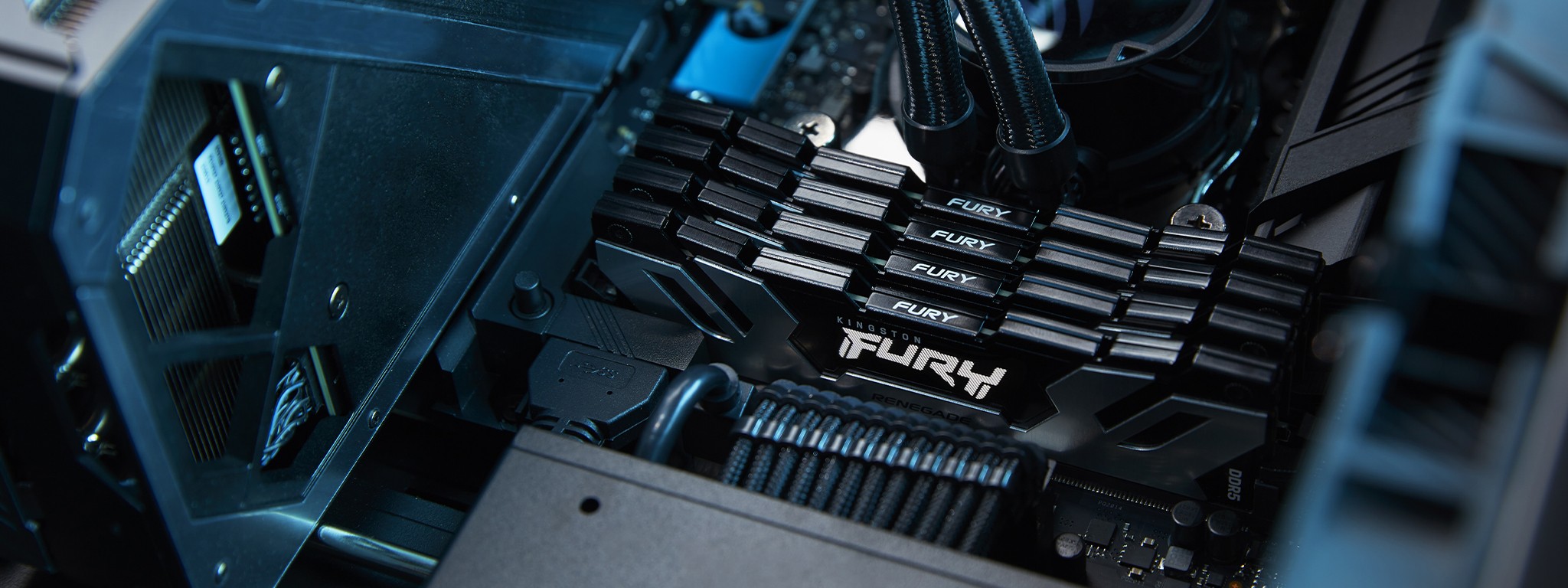Why memory is important for online gaming
When it comes to online gaming, having enough memory is crucial for a seamless and immersive gaming experience. Memory, also known as RAM (Random Access Memory), plays a vital role in handling the various tasks and processes that occur during gameplay. From loading game files and textures to running background applications and managing network connectivity, a sufficient amount of memory is required to keep everything running smoothly.
One of the primary reasons why memory is important for online gaming is its impact on performance. When you launch an online game, it needs to load various assets, such as character models, textures, and maps. The more memory available, the faster these assets can be loaded, resulting in shorter loading times and a smoother gaming experience.
In addition to faster loading times, having ample memory also allows the game to run more smoothly during gameplay. When you’re playing an online game, your computer or gaming console needs to keep track of numerous in-game elements, such as the positions of other players, the physics of the game world, and the actions of non-player characters. With sufficient memory, all these processes can be handled efficiently, reducing lags, stutters, and frame drops that can significantly affect gameplay.
Another aspect where memory comes into play is multitasking. While gaming, you may want to have other applications running in the background, such as voice chat programs, web browsers, or streaming software. These applications also consume memory, and if you don’t have enough, it can result in decreased gaming performance or even crashing of the game. With sufficient memory, you can comfortably run your game alongside other programs without any noticeable impact on performance.
Moreover, memory also plays a crucial role in maintaining a stable network connection during online gaming. As online games rely heavily on internet connectivity, having ample memory allows your device to handle the network packets efficiently, reducing latency and ensuring a smoother gameplay experience. This becomes even more important in online multiplayer games, where a stable and responsive network connection is vital for competitive play.
In summary, having enough memory is vital for online gaming. It improves loading times, enhances overall performance, enables smooth multitasking, and helps maintain a stable network connection. If you want to enjoy the best gaming experience, it’s essential to ensure that your computer or gaming console has sufficient memory to handle the demands of modern online games.
Minimum memory requirements for popular online games
Online gaming has become increasingly popular in recent years, with a wide variety of games available to players of all skill levels. To ensure smooth gameplay, it’s important to meet the minimum memory requirements for the specific games you wish to play. Here, we will take a look at the minimum memory requirements for some popular online games.
- Fortnite: Fortnite, a widely popular battle royale game, requires a minimum of 8GB of RAM. While 8GB may be sufficient for basic gameplay, having more memory can provide a smoother experience, especially during intense battles and when playing in crowded game modes.
- League of Legends: This popular multiplayer online battle arena (MOBA) game has a relatively low memory requirement. The minimum recommended memory for League of Legends is 2GB. However, it’s worth noting that having more memory can help with faster loading times and improved performance during team fights.
- World of Warcraft: As a massive multiplayer online role-playing game (MMORPG) with detailed environments and character models, World of Warcraft recommends a minimum of 4GB of RAM. However, to fully enjoy the game’s expansive world and participate in large-scale raids or player-versus-player battles, it’s advisable to have at least 8GB or more.
- Overwatch: Blizzard’s popular team-based shooter, Overwatch, recommends a minimum of 4GB of RAM. While the game is designed to run smoothly on a variety of systems, having more memory can provide a more stable framerate, reduce input lag, and improve overall responsiveness.
These are just a few examples of popular online games and their minimum memory requirements. It’s important to note that the memory requirements can vary depending on factors such as graphics settings, other running applications, and the overall complexity of the game world. It’s always a good idea to check the official system requirements or consult the game developer’s recommendations for the most accurate and up-to-date information.
Remember, meeting the minimum memory requirements is just the starting point. If you want to optimize your gaming experience and ensure smooth gameplay, consider having more memory than the minimum recommended. This will provide headroom for better performance, faster loading times, and the ability to run other applications alongside the game without any significant impact on performance.
How much memory is needed for a smooth gaming experience
When it comes to achieving a smooth gaming experience, having sufficient memory is key. While meeting the minimum memory requirements of a game is important, having more memory can significantly improve performance, reduce lags, and enhance overall gameplay. Here, we will discuss the recommended memory sizes for a smooth gaming experience.
For most modern online games, a minimum of 8GB of RAM is generally considered adequate. This amount of memory allows the game to run smoothly, handle the game’s assets efficiently, and enable seamless multitasking with other applications running in the background. However, as technology progresses and games become more demanding, having 16GB of RAM or more has become increasingly common to ensure optimal performance.
Having more memory provides several advantages for a smooth gaming experience. First and foremost, it allows for faster loading times. When you have ample memory, the game can store more data in RAM, reducing the need for frequent data access from the slower hard drive or SSD. This results in faster asset loading and less time spent waiting for game elements to appear.
In addition to faster loading times, having more memory can improve overall performance during gameplay. With higher memory capacity, your computer or gaming console can store more game data, including textures, models, and AI behaviors. This allows for smoother rendering, higher frame rates, and reduced stuttering, providing a more immersive and enjoyable gaming experience.
Furthermore, having extra memory allows you to run other applications simultaneously, without sacrificing game performance. For example, you can have voice chat software, video streaming platforms, or web browsers open while gaming, without causing significant slowdowns. This can be particularly useful when playing multiplayer games, as you may need to communicate with teammates or access information from external sources.
It’s worth noting that the memory requirements can vary depending on the specific game and its complexity. Graphics-intensive games or those with large open worlds may require more memory to handle the increased workload. Additionally, if you plan to play future games or use resource-intensive applications, investing in more memory now can future-proof your system and ensure a smooth gaming experience for years to come.
In summary, while 8GB of RAM is a good starting point for a smooth gaming experience, having 16GB or more can provide even better performance and future-proof your gaming rig. With more memory, you can enjoy faster loading times, improved overall performance, and the ability to run multiple applications without impacting gameplay. Invest in sufficient memory to enhance your gaming experience and stay ahead in the ever-evolving world of online gaming.
Tips to optimize memory usage for online gaming
Optimizing memory usage is essential for achieving optimal performance and a smooth gaming experience while playing online games. By following these tips, you can make the most of your available memory and ensure that your system runs efficiently:
- Close unnecessary background applications: Before launching an online game, close any unnecessary background applications and processes. Applications running in the background consume memory and can impact gaming performance. By closing unused programs, you free up memory for the game.
- Adjust graphics settings: Graphics settings, such as texture quality, shadows, and anti-aliasing, can impact both graphics performance and memory usage. Lowering graphics settings can reduce the memory requirements and improve overall performance.
- Manage browser tabs and other applications: If you have a web browser open while gaming, close any unnecessary tabs or extensions. Some web pages and extensions can consume a significant amount of memory. Similarly, ensure that other applications are not using excessive memory while gaming.
- Keep your system updated: Ensure that your operating system, drivers, and game client are up to date. Developers frequently release updates that optimize memory usage and improve compatibility with hardware, leading to better performance.
- Monitor memory usage: Use system monitoring tools to keep an eye on your memory usage while gaming. If you notice that memory usage is consistently high, consider upgrading your RAM to meet the demands of modern games.
- Defragment your hard drive: If you are using a traditional hard drive (HDD) instead of a solid-state drive (SSD), regularly defragmenting your hard drive can improve file access times and reduce memory-related performance issues.
- Close unnecessary background services: In addition to closing background applications, it’s advisable to disable unnecessary system services that may be running in the background. This can free up additional memory and system resources for your game.
- Consider using a memory management software: There are various memory management software available that can optimize memory usage and help free up RAM. These tools can automatically close unnecessary processes and allocate more memory to your game.
By following these tips, you can optimize your memory usage for online gaming and ensure maximum performance. Remember, every system is different, so it’s essential to experiment and find the settings that work best for your specific hardware and game preferences. By striking the right balance between memory usage and performance, you can enjoy a smoother and more enjoyable online gaming experience.
Upgrading your memory for improved online gaming performance
Upgrading your memory is a worthwhile investment if you want to enhance your online gaming performance. With increased memory capacity, you can experience faster loading times, smoother gameplay, and improved overall system responsiveness. Here are some key points to consider when upgrading your memory for online gaming:
- Determine your current memory capacity: Check your system specifications to determine the current memory capacity of your computer or gaming console. This will help you understand how much memory you have and how much you need to upgrade.
- Research the recommended memory for your games: Investigate the memory requirements of the online games you frequently play or plan to play in the future. This information will help you decide how much memory you should upgrade to for optimal performance.
- Choose the right type of memory: Different systems require specific types of memory modules. Research the specifications of your computer or gaming console to ensure compatibility when selecting and purchasing new memory modules.
- Consider the ideal memory capacity: While the minimum requirements for games are a good starting point, consider upgrading to a higher memory capacity for a more robust gaming experience. For most gamers, upgrading to 16GB or more of RAM is recommended for smoother gameplay and improved multitasking capabilities.
- Follow installation guidelines: When upgrading your memory, carefully follow the installation guidelines provided by the manufacturer. Improper installation can result in system instability or failure.
- Test your new memory: Once you have upgraded your memory, test your system to ensure that the new modules are functioning properly. This can involve running memory diagnostic tools or stress-testing your system to identify any issues.
- Consider other hardware upgrades: While memory upgrades can have a significant impact on gaming performance, it’s important to consider other hardware components as well. Factors such as the CPU, graphics card, and storage drive can also affect overall gaming performance. Assess your system’s capabilities and consider upgrading other components if necessary.
- Regularly maintain your system: After upgrading your memory, regularly maintain your system to keep it running at peak performance. This includes keeping your operating system, drivers, and games up to date, as well as performing regular system cleanups and hardware maintenance.
Upgrading your memory is an effective way to improve online gaming performance, allowing for smoother gameplay, reduced loading times, and enhanced multitasking capabilities. However, it’s important to note that memory upgrades may not solve all performance issues. Factors such as internet speed, network latency, graphics settings, and overall system configuration can also contribute to the gaming experience. Therefore, it’s essential to assess your system as a whole and address any other performance bottlenecks to achieve the best gaming performance possible.
Common memory-related issues in online gaming
Memory-related issues can significantly impact the gaming experience in online games. Understanding these issues can help you diagnose and resolve problems for a smoother and more enjoyable gaming session. Here are some common memory-related issues that players may encounter while gaming online:
- Game crashes: Inadequate memory can cause online games to crash. When a game doesn’t have enough memory to load and process data, it may freeze or abruptly shut down. This can be frustrating, especially during critical gameplay moments.
- Slow loading times: Insufficient memory can result in slow loading times, causing delays between game sessions or when transitioning between areas within a game. Lengthy loading times can interrupt the flow of gameplay and diminish the overall experience.
- Stuttering and frame rate drops: When memory is constrained, the game may experience stuttering or sudden frame rate drops. This leads to choppy and inconsistent visuals, hindering smooth gameplay and responsiveness.
- Poor performance during multitasking: Inadequate memory can cause system slowdowns or lead to poor performance when running other applications alongside the game. This can result in lag, input delay, and a decrease in overall gaming performance.
- Texture and model loading issues: Insufficient memory can cause incomplete or delayed loading of textures and models in the game world. This leads to low-resolution textures, object pop-ins, and overall visual degradation.
- Network connectivity problems: In online gaming, memory plays a role in maintaining a stable network connection. If memory is lacking, network packets may not be handled efficiently, resulting in increased latency, disconnects, or lag spikes, affecting gameplay and overall online experience.
- Incompatibility with newer games: As games become more demanding in terms of memory requirements, older systems with limited memory can struggle to run newer games smoothly. This can result in a compromised gaming experience or the inability to play newer titles at all.
To address memory-related issues in online gaming, there are several steps you can take. Upgrading your memory to meet or exceed the recommended requirements of your games is a significant step toward resolving these issues. Additionally, closing unnecessary background applications, optimizing graphics settings, and keeping your system and drivers updated can help optimize memory usage and prevent performance bottlenecks.
It’s important to note that other factors, such as network stability, internet connection quality, or hardware limitations, may also contribute to these issues. If the issues persist even after addressing memory-related concerns, it may be necessary to investigate these other potential sources of trouble to ensure a smooth and enjoyable online gaming experience.
Future trends in memory requirements for online gaming
As technology advances and online games become progressively more complex and immersive, the memory requirements for optimal gameplay are expected to continue evolving. Here are some future trends in memory requirements for online gaming:
- Increasing game world sizes: Many modern online games feature expansive, open-world environments with intricate details and vast landscapes. As these game worlds expand, the memory requirements for storing and rendering the game assets will also increase. Larger game worlds will demand more memory to efficiently load and process the necessary data.
- Higher resolution textures and models: With the advent of advanced graphics technologies, future online games are likely to feature higher resolution textures and detailed 3D models. These visually stunning elements increase the amount of memory needed to store and render them, resulting in more significant memory requirements for an optimal gaming experience.
- More advanced AI and physics: As game developers strive for increased realism and immersion, they will continue to push the boundaries of artificial intelligence (AI) and physics in online games. Sophisticated AI behaviors and complex physics simulations require additional memory to store and process the necessary data, leading to higher memory requirements for these advanced game features.
- Virtual reality (VR) and augmented reality (AR) gaming: The rise of virtual reality and augmented reality gaming is anticipated to have a substantial impact on memory requirements. VR and AR technologies demand high-performance graphics and real-time rendering, which consume a significant amount of memory. To ensure smooth and immersive VR and AR experiences, substantial memory upgrades will likely be necessary.
- Multiplayer scalability: With the growing popularity of large-scale multiplayer games and esports, future online games are expected to have even greater scalability to accommodate thousands, if not millions, of players simultaneously. Such massive multiplayer environments will require increased memory capacity to handle the additional player data, interactions, and communication.
- Advancements in streaming technology: As cloud gaming and game streaming services become more prevalent, the impact on memory requirements will be significant. Games that are streamed to devices rather than being run locally rely on robust server infrastructure, which requires substantial memory capacities to accommodate multiple game instances and ensure seamless streaming experiences.
It’s important to note that memory requirements will vary depending on the specific game and its specific features. Game developers will continue to optimize their games to ensure a balance between graphical fidelity, performance, and memory consumption. However, to fully experience and enjoy the latest online games, it’s advisable to keep an eye on future memory trends and consider upgrading memory capacities accordingly.
As technology advances, memory will remain a critical component in achieving an optimal online gaming experience. Staying informed about the evolving memory requirements of online games will help gamers make informed decisions when upgrading their systems and ensure they can continue to immerse themselves in the exciting and ever-evolving world of online gaming.

























